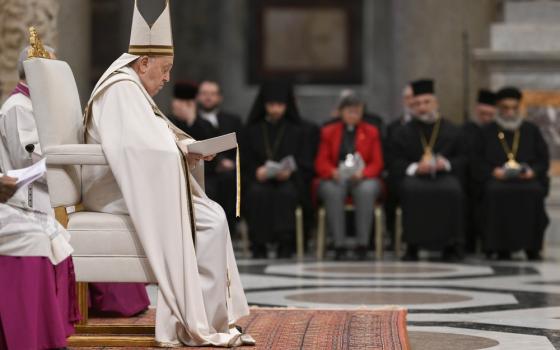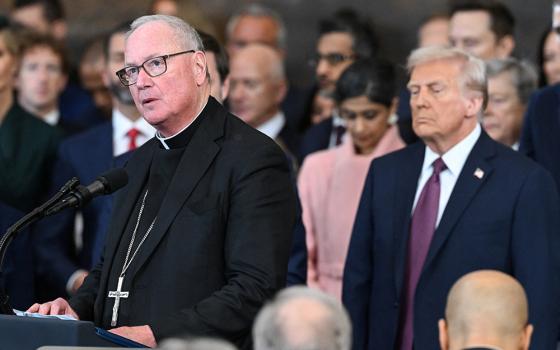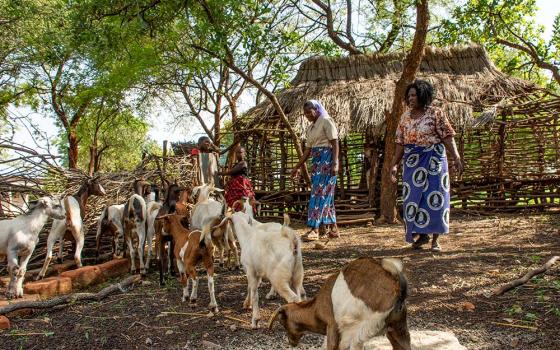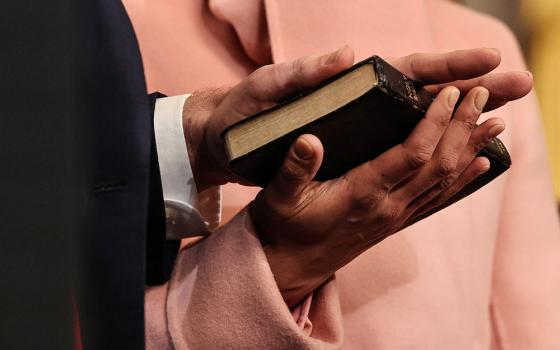
(Unsplash/Steve Halama)
Luke's story-telling ability sparkles in the Pentecost story. He narrates it in what we might call the "energetic superlative." Luke portrays all of Jesus' disciples gathered when suddenly the sound of a wind (like the Creator Spirit of Genesis) fills the air and balls of fire hover like tongues over each of them. They are all filled with the Holy Spirit, who leads them to proclaim their message in languages they had never studied but happened to be those that the pilgrims who heard them could understand.
The story's two key elements are the extraordinary influence of God's Spirit on the community and the breadth of the mission they were given the ability to accomplish. That helps us interpret Jesus' promise to send the Spirit to the disciples.
Jesus calls the Spirit "the Advocate." While Christian preachers have often taken that to mean that the Spirit is sinful humanity's advocate before God, Jesus seems to be saying just the opposite: The Spirit is God's advocate with humanity. The role of the Spirit is to be God's goad, reminding disciples of who they are and enabling them to fulfill their call.
To prepare for this celebration, we need to put our heart and soul into singing the refrain to Psalm 104. It takes courage and generosity to pray, "Lord, send out your Spirit, and renew the face of the earth." We are praying to the God of the Exodus, who called Moses to free the slaves and create a people of the covenant. The prayer also recognizes God as the Creator, the origin and destiny of life, the God who shares divine creativity with us.
We might imagine that the Pentecost disciples were praying something like Psalm 104 when the Spirit broke in on them. Whatever they might have been anticipating in their prayer, the Spirit's descent massively exceeded their expectations, and those of the people who saw and heard what happened.
Luke wants us to realize that the disciples were suddenly on fire with their message. He doesn't give us precise details about the group's gift of tongues, but reading between the lines, we remember that the women and men it happened to were part of a tight-knit group who had traveled together and shared their faith and hope in Jesus. In both the literal and the symbolic sense, they spoke the same language.
When the Spirit exploded into their presence, they found themselves able, even impelled, to proclaim to others what it meant that Jesus was the good news, God's most explicit, most insistent, word of love and hope for the world, the supposed victim against whom evil and death had turned out to be impotent.
Not only were the disciples on fire with that message, but they were amazingly capable of sharing it with people with whom they had previously not been able to communicate. They found themselves united in a communion of hope and dreams, of faith and commitment, with people who literally did not speak their language.
Luke's Pentecost story gives an overview of the Acts of the Apostles and the mission of the church. It relates how the Spirit can enable disciples to touch hearts and build communities of faith among people all over the world. The Spirit who enflames disciples reveals how, as Gabriel had told Mary at the beginning of Luke's Gospel, nothing is impossible for God.

(Mark Bartholomew)
Today we are invited to join with the disciples who gathered in Jerusalem after Jesus' return to the Father. The world around them seemed to be the same as it had been two months before, but they were different enough to allow themselves to be set on fire by God's Spirit. If they had not been open to God's goading Spirit, Christianity would have died at its birth. Instead, they carried the message of God's relentless love throughout the world and for 2,000 years others have continued to carry it forth.
The readings present Pentecost as what I would call the "Feast of Limitless Possibilities." Pentecost challenges us to ask ourselves if we are courageous enough to harbor the open-ended expectations demanded of anyone who prays, "Lord, send out your Spirit, and renew the face of the earth." The feast asks if we are generous enough to give ourselves to spreading the fire of God's love in a world as needy as it has ever been.
We have been promised the Spirit who can renew the face of the earth. When we invite that Spirit into our world, we must do it with our whole heart or not at all. God is goading us, but we have to decide if we are willing to carry fire.
[Mary M. McGlone is a sister of St. Joseph of Carondelet who is writing the history of the Sisters of St. Joseph in the U.S.]
Editor's note: This Sunday scripture commentary appears in full in NCR's sister publication Celebration, a worship and homiletic resource. Request a sample issue at CelebrationPublications.org. Sign up to receive email newsletters every time Spiritual Reflections is posted.
Advertisement








